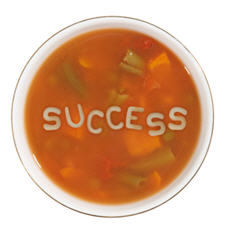What’s In A Name?
Talk about pressure: choosing the name for your company, key product, or service, may in fact be the most important marketing decision you make. Don’t take this task lightly!
Many businesses, unfortunately, put little thought into this all-important decision, settling for names that do little to enhance image or reputation. And it’s not simply small start-ups that fail at this responsibility; in fact, many large, sophisticated corporations are equally guilty of settling on generic, nondescript names.
3 Simple Rules for naming your business, product or brand
Here are 3 simple rules that will help you develop an effective name for your business, product or brand. These are guidelines, rather than hard and fast rules. And if you find a name that you really love, by all means, trust your instincts and go with it. There are always successful exceptions to every rule.
Rule 1. Avoid generic sounding names
If it sounds cliché, it is cliché, so don’t use it. Very often, businesses choose names that are generic, non-descript and overused. Avoid using words like the following:
- General
- Consolidated
- International
- Associates
- Universal
- World-Wide
Companies think that using these terms they will position their company as large, long established and stable, but these traits are too common and do little to differentiate itself from the competition. Which company has a stronger brand image: General Tire or Michelin?
Rule 2. Avoid initials or acronyms
Another common error is relying on initials and acronyms. This is epidemic among business today, and I can’t understand why business partners would use their initials to form the company name – other than driven more by personal ego and than sound business tactics. Not a smart move.
If you call your company the SMC Corporation, what are you communicating to your customers? Nothing! When you use initials, you lose the opportunity to quickly communicate key business elements to your customer when they first encounter your company. Don’t make it harder on your customers to know who you are!
Rule 3. Avoid names with too many words
During the 1980s, American Express wanted to expand into the brokerage services business – it purchased Shearson Loeb Rhoades and Lehman Brothers Kuhn Loeb, calling the new firm Shearson Lehman American Express. Phew! Quite a mouthful, and an example of how large, sophisticated companies make naming errors. The resulting merger so thoroughly confused customers that the brokerage business was ultimately sold to Primerica, and the firm again became known as good old American Express.
If you already have a long name, think about abbreviating or shortening it. International Business Machines, which violates Rule #1 and Rule #3, became simply known as IBM (which happens to violate Rule #2). This goes to show that there are always successful exceptions to these rules when the company is exceptional at its core business and creates a powerful brand.
